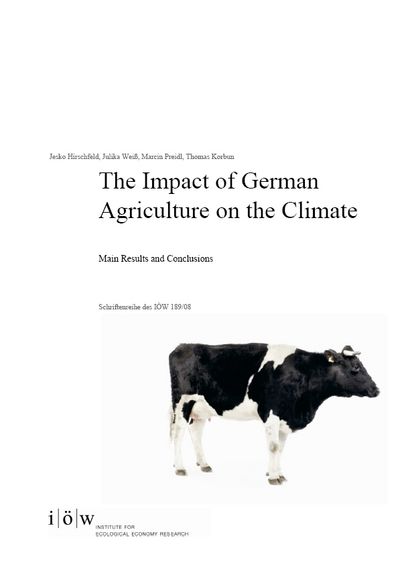The Impact of German Agriculture on the Climate Main Results and Conclusions
The agriculture in Germany accounts for a significant degree of greenhouse gas emissions. In climate protection strategies (i.e. the energy and climate programme of the federal government), the contribution of the agriculture is usually still neglected. Therefore, the purpose of this study is the evaluation of climate impacts of the agricultural production in Germany, with respect to the most important agricultural products – wheat, pork, beef and milk. The research focuses on, to what extent conventional and organic farming are different in their climate impacts and which advantages and disadvantages can be found in different systems. The performances of the climate assessment show that organic farming normally is more climate friendly than conventional agriculture. That primarily results from large amounts of mineral fertilizer used in the conventional agriculture which causes high greenhouse gas emissions during production and application. On the other hand, the demand for space throughout ecological production processes is higher than in conventional systems. Furthermore, a significant potential for climate protection can be seen in the water logging of drained marsh areas whose current agricultural utilization leads to extensive greenhouse gas emissions. Altogether, the agriculture could contribute to the attainment of Germany’s climate goals. This could be achieved through changes in production methods as well as abandoning or extensification of the used marsh areas. For this purpose, the study will identify central starting points as well as discuss potential synergy effects and conflicts with environmental and animal protection goals.



